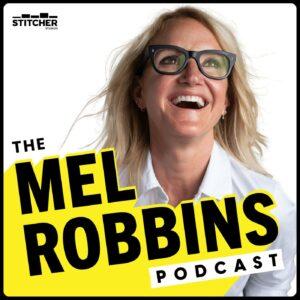Intro
In this episode of the Rich Habits Podcast, the hosts demystify the alphabet soup of finance, breaking down confusing acronyms and providing valuable insights into personal finance and investing. With a unique blend of perspectives from an industry veteran and a young entrepreneur, they aim to make finance approachable for all listeners.
Main Takeaways
Investment Strategies
- Dollar cost averaging (DCA) is an investment strategy that every listener should implement, allowing them to invest a fixed amount regularly regardless of market conditions.
- Exchange Traded Funds (ETFs) are important for the average investor as they provide ownership of a diversified basket of stocks, offering exposure to various market sectors and strategies.
- REITs (Real Estate Investment Trusts) are a great way to invest in income-producing real estate without the hassle of managing properties themselves. They offer diversification across different types of real estate properties.
- High-yield savings accounts (H-Y-S-A’s) have become popular due to their high-interest rates, allowing investors to earn more on their emergency funds compared to traditional checking accounts.
- Treasury Bills (T-Bills) are risk-free US debt securities that provide a way to earn interest on your money, with no state or local taxes on your gains.
Financial Protection
- FDIC (Federal Deposit Insurance Corporation) ensures that every dollar up to $250,000 you deposit into your local bank is insured, providing protection in case of bank insolvency.
- SIPC (Securities Investor Protection Corporation) ensures that $500,000 of your stocks and cash inside your brokerage account are insured, safeguarding your investments in case of brokerage insolvency.
Retirement Accounts
- An Individual Retirement Account (IRA) is a retirement account tied to the individual, not the employer. It is a crucial wealth-building tool that everyone over 18 should have, especially a Roth IRA.
- Roth IRA offers tax-free growth and tax-free withdrawals in retirement, making it an attractive option for long-term wealth accumulation.
- Maxing out your Roth IRA contribution limit of $6,500 per year can significantly boost your retirement savings.
Alternative Investments
- Private assets like fine art can provide low correlation in portfolios, offering diversification benefits.
- Masterworks is a platform that allows everyday investors to invest in art without needing millions or an art degree, providing access to the art market.
Other Financial Strategies
- 529 accounts can be a good option for college savings and can also be rolled over into a Roth IRA for retirement if not used for college expenses.
- Getting a financial advisor may be a good idea for those with high incomes, even if they don’t have millions to invest yet, as they can provide valuable guidance and strategies.
- A bridge account, like a traditional online brokerage, can complement other investment strategies and provide flexibility.
- Dual income, no children (DINK) couples have more flexibility with their finances, allowing them to focus on building wealth and enjoying life.
- High earners may consider investing in income-generating stocks or thematic investments to make the most of their excess money that cannot be invested into retirement accounts.
Summary
Investment Strategies for Wealth Building
The hosts emphasize the importance of investment strategies such as dollar cost averaging (DCA) and owning Exchange Traded Funds (ETFs) to achieve long-term financial goals. They highlight the benefits of REITs for real estate exposure and high-yield savings accounts (H-Y-S-A’s) for maximizing returns on emergency funds. Additionally, they discuss the risk-free nature of Treasury Bills (T-Bills) and their potential for earning interest.
Financial Protection and Retirement Planning
The podcast delves into the role of FDIC and SIPC in ensuring the safety of deposited funds and investments. They stress the importance of opening an Individual Retirement Account (IRA), particularly a Roth IRA, as a powerful wealth-building tool. The hosts recommend maxing out Roth IRA contributions and explain the tax advantages associated with this retirement account.
Exploring Alternative Investments and Financial Strategies
Listeners gain insights into the potential benefits of investing in private assets like fine art through platforms like Masterworks. The podcast also touches on the advantages of 529 accounts for college savings and the option to roll them over into a Roth IRA. The hosts suggest considering the guidance of a financial advisor and utilizing bridge accounts for comprehensive financial planning. They highlight the financial flexibility enjoyed by dual income, no children (DINK) couples and offer strategies for high earners.
Conclusion
Demystifying the alphabet soup of finance, this episode of the Rich Habits Podcast provides valuable insights and practical strategies for personal finance and investing. By breaking down complex acronyms and offering diverse perspectives, the hosts aim to make finance approachable and empower listeners to build wealth and secure their financial future.
